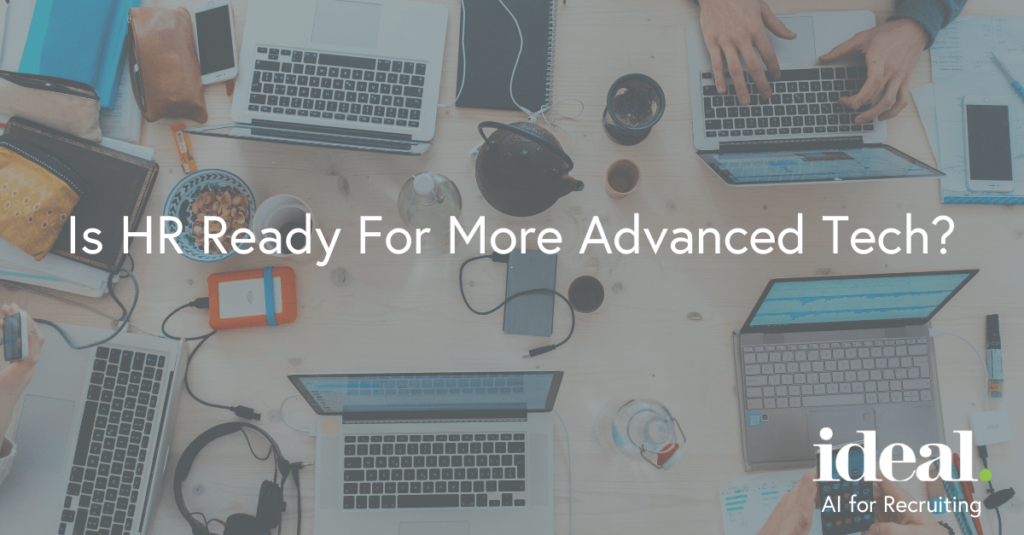
Is your team feeling like they might be ready to adopt tech to make their jobs more efficient?

NPR’s On Point recently did a segment about AI for recruiting and, more broadly, AI and bigger tech advances in Human Resources. During the segment, the guests talk about an internal IBM tool that can supposedly predict turnover six months out, subsequently sending “nudges” to the managers of those at risk for leaving the company so they can do something about it. IBM does not sell that technology on the market; it’s strictly an internal resource. When The Washington Post covered the IBM tool, they noted it was an example of advanced technology entering the “traditionally low-tech Human Resources department.” This lines up with another recent article, this one from HR Executive: “AI is coming, but is HR ready?”
The basic summary of that article can be found in its second paragraph:
For example, nearly half (43%) of the 500 HR leaders at mid-sized organizations surveyed believe their organization will not keep up with related changes in technology during the next decade. Fewer than one in three consider their skills at an “expert” level for the change, 57% say they can’t invest in new technology because of resourcing restrictions and only 25% consider themselves tech-savvy.
So is a department we traditionally associate with compliance — as opposed to tech or innovation — ready for everything that’s coming towards it? Some of those stats above would indicate “No,” but broadly the answer is “It’s complicated.”
The current situation
Right now, per stats from HR Tech in Vegas this October, about 24% of HR leaders use artificial intelligence for recruiting, with 56% planning to adopt it within the next year. That’s about ¼ currently using it recruiting-wise, with another half set to be buyers. So, broadly, “Yes, HR is ready for this more advanced technology.”
But here’s an interesting nuance, brought up in this Vadim Lieberman Twitter thread: many HR Technology vendors don’t like to sell directly to HR, sometimes using the reasoning that they “don’t get it” (i.e. the technology and what it can do). Within that thread, one respondent called HR “more of a blocker than executive teams,” noting that they’re “very reluctant to make sudden changes.” But many on the thread disagreed with that idea, even saying that HR “often understands integrations better than IT does.” And Kris Dunn made perhaps the most salient point: “If you don’t love the audience you’re selling to and are committed to help, you’re destined for failure.”
What question should we be asking?
The question isn’t really “Is HR ready for advanced technology?”
The question, instead, should be: “How can HR benefit and even change its broader reputation by using advanced technology?”
You can find that main value proposition in the same HR Executive article from above. They note an example from Accenture, where they started baking AI and machine learning into recruiting and other HR functions. Their managing director for HR services and transformation in North America and Europe says the grand-daddy of value propositions for AI: now the recruiters are “spending their time on the most important things.”
That means building relationships with candidates, selling them on the job, and explaining how the offer is competitive in-market. Those are all transformative actions that can change the course of the talent you acquire, as opposed to transactional elements like top-of-funnel sourcing and moving around interview times. Those are no doubt important, but they are not the “most important” elements of the process.
So yes, HR and recruiting are ready for AI and machine learning and other advanced tech — and in many cases, it’s already here! But the question isn’t if they’re ready. The question is how all the technological developments will help them become a strategic business function over time. The jury is still somewhat out there, but we’re moving in the right direction.